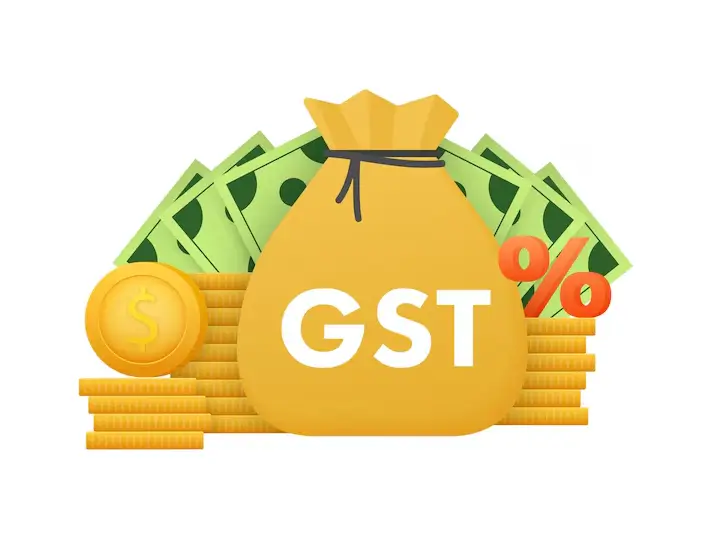GST Registration for Sole Proprietorship
Get your GST Registration for Sole Proprietorship done quickly and hassle-free! Ensure legal compliance, expand your business reach, and build customer trust. Our expert team handles everything from documentation to filing. Start your GST registration today and take your business to the next level. Contact us now for a free consultation!
Apply for GST
- GST Registration Certificate
- User ID and Password of GST portal
- All India Service
- Easy Onlie Process
- 24*7 Hours Customer Support
GST Registration for Sole Proprietorships: Overview
Goods and Services Tax (GST) has transformed the landscape of indirect taxation in India, making it crucial for businesses, including sole proprietorships, to register under this framework. This article provides an in-depth overview of GST registration for proprietorship, focusing on the requirements, process, and essential documents.
What is GST?
GST registration for sole proprietorship is the process through which a sole proprietor obtains a GST Identification Number (GSTIN) from the government. This registration is essential for legal compliance and enables the proprietor to collect GST from customers, file returns, and claim input tax credits.

Why is GST Registration Important for Proprietorships?
- Legal Compliance: It ensures adherence to tax regulations.
- Input Tax Credit: Registered proprietors can reclaim GST paid on business purchases, reducing their overall tax liability.
- Market Credibility: GST registration adds legitimacy to your business, enhancing trust among clients and suppliers.
- Easier Access to Credit: A registered business often finds it easier to obtain loans and credit from financial institutions.
Who Needs GST Registration for Proprietorship?
Sole proprietorships must register for GST if their annual turnover exceeds ₹20 lakhs (₹10 lakhs for special category states) or if they are engaged in inter-state supply of goods and services. E-commerce operators and those providing specific taxable services also require registration.
Documents Required for GST Registration for Proprietorship
For Rented Property
- Proprietor Pan card and adhaar card
- Proprietor Photograph
- Commercial Rent Agreement
- Electricity bill
For Owned Property
- Proprietor Pan card and adhaar card
- Proprietor Photograph
- Electricity bill
GST Registration Fee
- GST Registration Certificate
- User ID and Password of GST portal
How to Apply for GST Registration for Proprietorship
The proprietorship GST registration process is straightforward. Here’s a step-by-step guide:
- Visit the GST Portal: Go to the official GST portal at www.gst.gov.in.
- Select ‘New Registration’: Click on the option for new GST registration.
- Enter Basic Details: Fill in the required information, including PAN, email ID, and mobile number.
- OTP Verification: An OTP will be sent to the registered mobile number for verification.
- Upload Documents: Submit the necessary documents as listed above.
- ARN Generation: Once submitted, an Application Reference Number (ARN) will be generated, allowing you to track your application.
- GSTIN Issuance: Upon successful verification, you will receive your GST Identification Number via email.
Navigating GST registration proprietorship is essential for sole proprietors to ensure compliance and enjoy the benefits associated with GST. By understanding the registration process and preparing the required documents, proprietors can streamline their operations and enhance their business’s credibility. If you’re unsure about the process, consider consulting a tax professional for tailored guidance.
With GST registration, your sole proprietorship can not only meet legal obligations but also leverage opportunities for growth and expansion in the competitive market landscape.

Don’t wait! Initiate your GST registration process with our expert team.Start Your GST Registration Now!
FAQs on GST Registration for Sole Proprietorship
1. What is GST registration for sole proprietorship?
GST registration for sole proprietorship is the process through which a sole proprietor obtains a Goods and Services Tax Identification Number (GSTIN). This registration is essential for legal compliance and allows the proprietor to collect GST, file returns, and claim input tax credits.
2. Who needs to register for GST as a sole proprietorship?
Sole proprietorships must register for GST if their annual turnover exceeds ₹20 lakhs (₹10 lakhs for special category states) or if they engage in inter-state supply of goods and services.
3. What are the documents required for GST registration for proprietorship?
The documents required for GST registration include:
- PAN Card of the proprietor
- Aadhaar Card
- Proof of Business Registration (e.g., business license)
- Address Proof (utility bill or rental agreement)
- Bank Account Statement (recent statement or canceled cheque)
- Recent passport-sized photographs
4. How long does it take to get GST registration?
The GST registration process typically takes about 7 to 10 working days, provided all documents are submitted correctly and there are no discrepancies in the application.
5. Can I apply for GST registration online?
Yes, you can apply for GST registration online through the official GST portal at www.gst.gov.in. The portal provides a user-friendly interface to guide you through the registration process.
6. What happens if I don’t register for GST?
If you do not register for GST when required, you may face penalties, including fines and legal action. Additionally, you will be unable to collect GST from customers or claim input tax credits, which could affect your business profitability.
7. How can I check my GST registration status?
You can check your GST registration status by visiting the GST portal and entering your Application Reference Number (ARN) in the “Track Application Status” section.
8. Is GST registration mandatory for all sole proprietorships?
No, GST registration is mandatory only if your turnover exceeds the prescribed limit or if you are engaged in specific taxable activities. However, voluntary registration can also be beneficial for claiming input tax credits.
Navigating GST registration proprietorship is essential for sole proprietors to ensure compliance and enjoy the benefits associated with GST. By understanding the registration process and preparing the required documents, proprietors can streamline their operations and enhance their business’s credibility. If you’re unsure about the process, consider consulting a tax professional for tailored guidance.
With GST registration, your sole proprietorship can not only meet legal obligations but also leverage opportunities for growth and expansion in the competitive market landscape.










